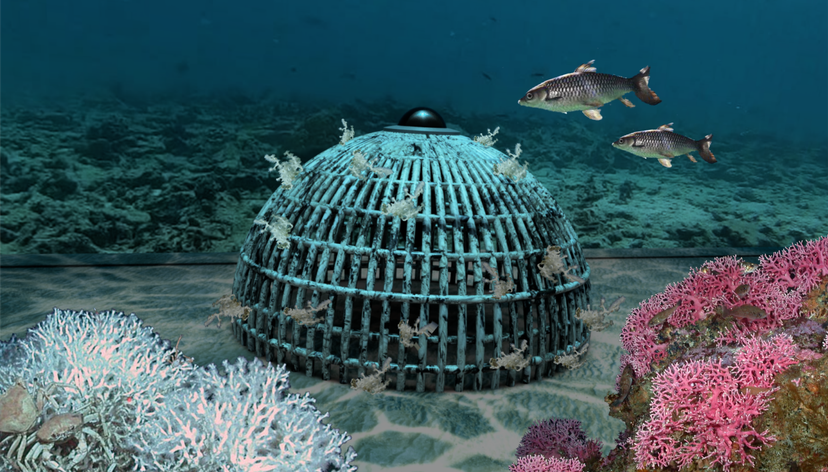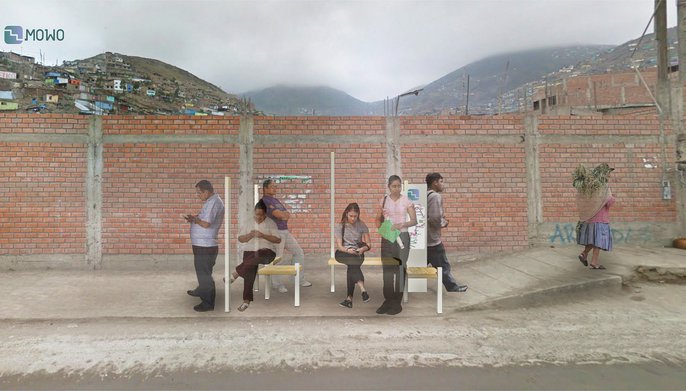
Key details
Date
- 21 April 2022
Author
- RCA
Read time
- 4 minutes
The Royal College of Art is delighted to announce the three winners of the RCA Grand Challenge 2021/22: New Economic Model for the Oceans on the United Nations World Creativity and Innovation Day.
Key details
Date
- 21 April 2022
Author
- RCA
Read time
- 4 minutes
The Grand Challenge 2021/22 tasked students with designing innovative solutions towards a New Economic Model for the Oceans, in partnership with Logitech and supported by Extreme E and Sustainable Ventures.
The biggest single-institution postgraduate design project in the world, the 2021/22 edition of the RCA Grand Challenge saw 350 students across all disciplines in the School of Design work together to tackle challenges affecting oceans and marine ecosystems.
“Announcing the winners of this year’s School of Design’s Grand Challenge on the United Nations World Creativity and Innovation Day allows us to showcase and celebrate an amazing range of student ideas that have sensitively and creatively questioned our thoughts and knowledge about the world’s oceans.”
Dean of the School of Design
Working in 70 interdisciplinary teams, postgraduate designers devised solutions combatting a range of issues including environmental sustainability, plastic pollution, loss of marine habitat and new ocean economies. From these 70 teams, 12 were shortlisted earlier this year.
These finalists then had the opportunity to further develop their ideas before presenting them to a panel of judges which brought together industry and scientific expertise, including renowned Apple designer Peter Russell-Clarke; Alastair Curtis, Chief Design Officer at Logitech and RCA alumnus; Professor Lucy Woodall, Associate Professor at the University of Oxford and Ocean Scientist with Extreme E; and Dr Jiayu Wu, Reader in Intelligent Mobility Design at the Intelligent Mobility Design Centre (IMDC). The panel was chaired by Professor Paul Anderson, Dean of the School of Design.
“This year’s Grand Challenge blew me away as far as the complexity of some of the solutions the teams were trying to tackle. It was also really telling how a number of the presentations were incredibly emotional and incredibly powerful.”
Chief Design Officer, Logitech and RCA alumnus (MA Industrial Design Engineering)
Three prizes of £2,500 were awarded based on the innovative design and emotional resonance underpinning the solution. Each winning project provides a sustainable solution to current challenges facing marine environments – from the health of coral reefs to underwater sound pollution – that easily integrates into its surroundings.
The winning projects are:
Reef Bells
Designed by Xiaowei Fang (MA Fashion), Joon Hyung Park (MA Design Products), Henry Parkin (MA/MSc Innovation Design Engineering), Zoe Jia Xiong (MA Service Design) and Zifan Zhang (MA Textiles).

Reef Bells are analogue instruments designed to be played by the ocean current on coral reefs. Tuned to mimic the percussive crackling sound of a healthy reef, Reef Bells act as an aural navigation tool for baby reef fish which spawn in open water and navigate to coral reefs by listening for the sounds made by the animals which inhabit them. Reef Bells provide an energy-free toolkit for acoustic enrichment without using speakers and are designed for longevity – once they stop making useful sound, the bio-composite ceramic which they’re made from provides ample substrate for the growth of new life.
On behalf of the judging panel, Alastair Curtis commented:
'The thing that appealed to me about Reef Bells was the simplicity of the actual concept. There are no electronics in it – it's purely an inanimate object. I think the fact that it could, in theory, be 3D-printed and retuned just made it really quite beautiful. It’s almost part of the coral reef as well with an architectural quality about it. It didn’t feel like modern technology integrated into the coral reef, it felt like technology made to feel appropriate to its environment, which really resonated with me.'
After Life
Designed by Cody Kullman (MA Textiles), Felix Ke Chen (MA/MSc Innovation Design Engineering), Haoyue Lin (MA Design Products), Yuhan Liu (MA Fashion) and Yalena Yang Sun (MA Service Design).

After Life is a revolutionary ocean memorial reef and funeral company that allows people to continue the legacy of their loved ones underwater. Combining sustainable materials, innovative technology and humane services, After Life reefs help coral ecosystems and reduce the heavy carbon emissions from traditional funerals while allowing people to remember their loved ones more meaningfully.
On behalf of the judging panel, Alastair Curtis commented:
'I found something so beautifully circular about After Life – it represents us as humans in this circular dimension giving back to the earth. And I can imagine when a family comes to visit the reef – whether you go out on a boat or are just on the beach by the sea – it gives people a chance to reconnect with nature, which really resonated with me. I think it’s an idea that could work anywhere in the world.'
Decibel
Designed by Haochen Zhou (MA Service Design), Khanh Nguyen (MA Design Products) Rhea Thomas (MA/MSc Global Innovation Design), Richard Newman (MA Intelligent Mobility) and Yihan Dong (MA/MSc Innovation Design Engineering).

Decibel is a nature-based solution for noise pollution – an invisible pollutant that is a major and often deadly threat to marine life. Decibel provides a structure on which kelp and oysters can be grown, acting as a natural sound barrier between shipping highways while creating a regenerative marine permaculture system. This paves the way for a circular economy where oysters, fish, and kelp can be harvested while mitigating sound pollution.
On behalf of the judging panel, Alastair Curtis commented:
'There was a common theme across all three winners in so much that all three, from a technology point of view, are very analogue solutions where you create something to put into the sea that can live on forever or decompose naturally. The thing I liked about Decibel is, again, it’s putting something into the sea which then creates a new foundation, this time for plants and kelp to grow and help rebuild the reef. It has a double purpose – the more the kelp grows, the more that helps with sound protection as well.'
The RCA Grand Challenge 2021/22 was delivered in partnership with Logitech and supported by Extreme E and Sustainable Ventures.


